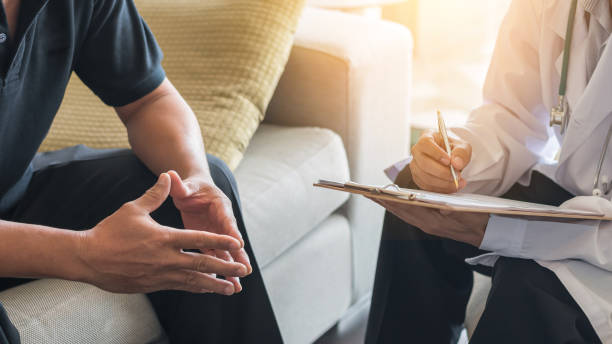Many people with mental health issues go undiagnosed and undertreated. Depression is a major problem, and it affects men and women of all ages.
Fortunately, depression is treatable. Getting help early is the best way to heal from depression. Reading books on depression can also help, especially when they contain a variety of effective techniques.

What is depression?
Depression is a serious mood disorder that can cause many symptoms, including loss of interest or pleasure in activities, feelings of sadness and despair, low self-esteem and thoughts of death or suicide. It can make it difficult to work, maintain relationships and carry out daily tasks. Depression is one of the most common mental illnesses, but it can be treated.
Symptoms of depression may be mild, moderate or severe. They can also change in intensity and duration over time, from episode to episode. The condition can be accompanied by anxiety or a variety of other emotions, including guilt and shame.
Some people are more susceptible to developing depression than others. Family history – depression can run in the family – and personality traits, such as low self-esteem or pessimistic outlook, increase the risk of depression. Biological factors, such as differences in chemicals in the brain, can also play a role, but these are usually triggered by events or experiences.
Depression can be treated with psychological treatments and antidepressant medications. Psychological treatment options include individual therapy sessions, group therapy and self-help manuals or websites. Many people find that relaxing techniques, such as deep breathing or yoga, help ease depression. Medications that treat depression include SSRIs (selective serotonin reuptake inhibitors) and other drugs. SSRIs are the first line of treatment, but some patients do not respond to these medications or may experience side effects.
Symptoms of depression
Depression can cause a wide range of symptoms. They may include feeling sad or low in spirits, losing interest in activities you usually enjoy, having a constant or very poor appetite, experiencing feelings of hopelessness or despair, having trouble sleeping, having an increased number of headaches or other physical aches and pains, slowed thinking or difficulty making decisions and often having an overwhelming sense of sadness. People with depression also feel more tearful than usual, have a more negative outlook and experience problems with their relationships and self-image. They may also have difficulty dealing with problems at work or school. Severe depression can lead to thoughts of suicide.
Depression is different for everyone. It can last for different periods of time and can be triggered by many things including serious losses, abuse, stress and illness. Women are at greater risk of depression during pregnancy and the year after childbirth (known as the antenatal and postnatal period).
Psychotherapy, or talk therapy at Modern Medicine, has been proven effective in treating depression. It can be used on its own for mild depression or in combination with antidepressant medication for moderate to severe depression. Talk therapies such as behavioural activation and cognitive behavioral therapy help a person to recognize and change unhealthy emotions, thoughts and behaviors. It is important to remember that it takes a while to get better from depression. It is important to stick with treatment and try not to give up.
Treatment for depression
Although all of us experience sadness or low moods from time to time, depression is a persistent feeling that disrupts your everyday life. If you have symptoms of depression, it’s important to seek care. Most people find that a combination of talk therapy (psychotherapy) and medication can help reduce their symptoms.
There are many different types of talk therapy that can help with depression, including Behavioral activation therapy, which encourages you to try new activities and build up your self-esteem. Cognitive behavioral therapy (CBT) can help you change negative thought patterns and learn better coping strategies. Interpersonal therapy (IPT) can help you understand and work through problems in your relationships with others.
Sometimes, if your depression is severe, you may need hospital or residential treatment. Your doctor can also recommend psychiatric treatments such as electroconvulsive therapy or transcranial magnetic stimulation, which sends electric currents to your brain and helps your neurotransmitters work properly.
If you’re struggling with depression, it can be helpful to join a support group. The Anxiety and Depression Association of America offers free webinars that explain how to find a local support group, as well as how to get help for yourself or someone you know who is suffering from depression. They also offer free online resources and a community of people who can share their experiences and provide hope and inspiration.
Getting help for depression
The sooner a person gets help, the more likely they are to recover from depression. If untreated, symptoms can linger for months or years. Depression affects every part of a person, including moods, feelings, thoughts and physical well-being. Depression often causes people to feel helpless or hopeless. It can also interfere with a person’s appetite and energy levels, as well as their sleep habits.
It’s important to find a psychologist in Ballarat VIC who you connect with and feel comfortable sharing your experiences with. Word of mouth is a good way to start your search, and national mental health organizations can provide you with a list of licensed credentialed providers. In addition to medication, therapy is an important aspect of treatment for depression. Psychological treatments, known as talking therapies, are proven to be effective in changing negative thinking patterns and improving coping skills. These therapies can include cognitive behavioral therapy (CBT), interpersonal therapy and a variety of other therapies.
Depression can cause problems with work, school and relationships. It can also lead to substance use disorders and other medical conditions, such as heart disease or cancer. If you notice any warning signs, contact your doctor or therapist right away. It’s also important to pay attention to your family and friends and ask them for support. They may be able to help you recognize when you are showing signs of depression and offer encouragement to seek treatment.






